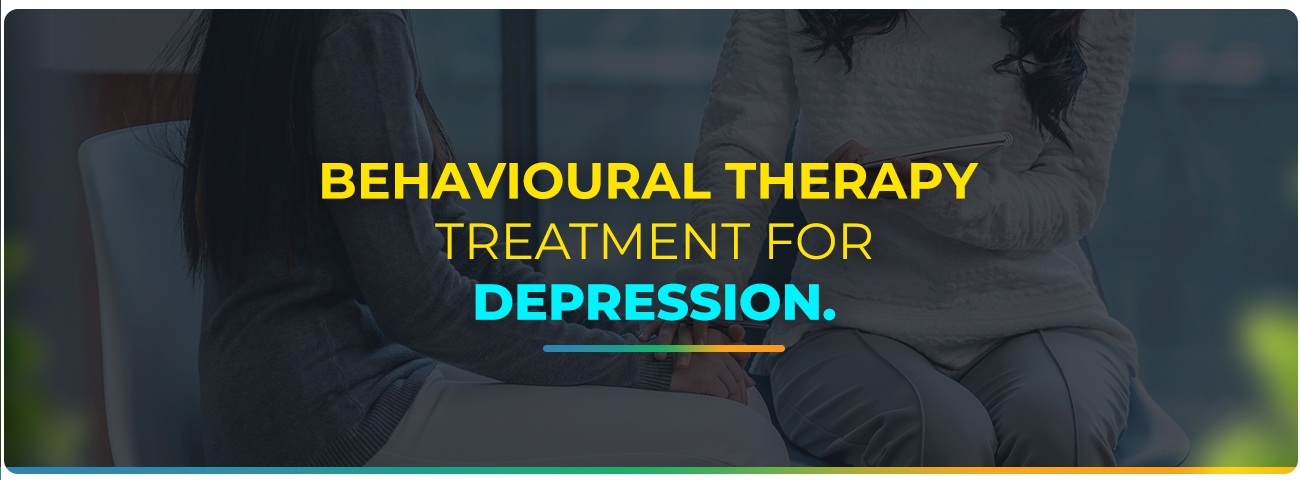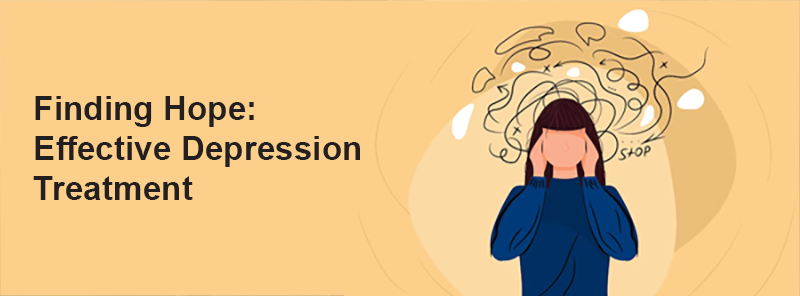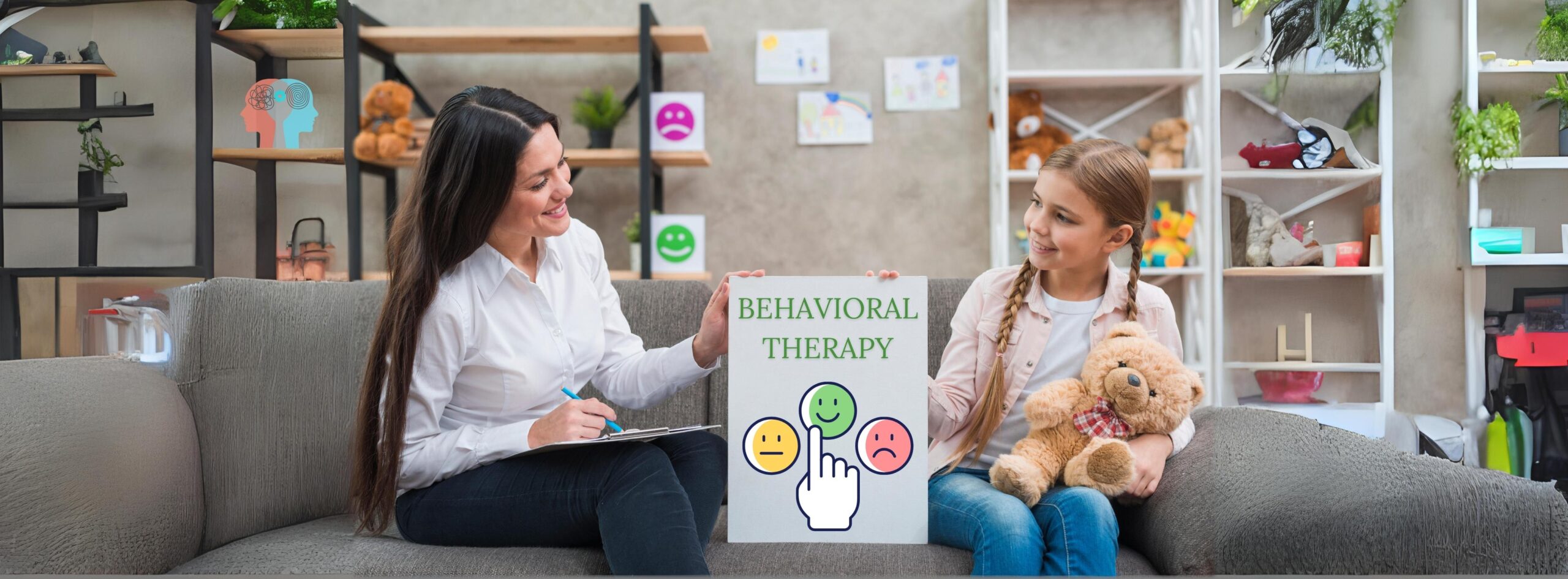Behavioural therapy addresses the root cause of “automatic negative thoughts “in patients having depression. It is considered as the best treatment for depression. The core impulse of this therapy is the assumption that a person’s mood is directly related to his or her pattern of thought. Depression precursors can be negative thinking, having low self-esteem, mood swings, and physical tiredness. The objective of behavioural therapy is to replace the negative thoughts by validating it and transforming it in to positive thinking.
The ultimate aim of the behavioural therapy is to make the patients to transform their dysfunctional thinking and change the behaviour patterns. The patients often get in to a downward spiral of negative thoughts and it greatly affects the mood leading to depression.
Behaviour therapy focusses on bringing about change in thinking patterns through behaviour modification with a specific goal pertaining to each session and the duration of therapy. Behavioural treatment can be offered in sessions either face to face or through telephone or as a structured group activity based on severity of depression.
Behavioural therapy uses structured learning experiences to make the patients reflect on their negative thoughts and flashing mental images. It also focuses on coping skills like problem solving and scheduling pleasurable experiences. Depression patients will be made to identify the trigger points that affects their mood and they will be given homework assignments at each session. The assignments are reviewed at the start of every session.
Cognitive Behavioural therapy for depression

The Cognitive Behaviour Therapy (CBT) deploys multiple strategies like role plays, imagery, behavioural experiments, guided discovery, Socratic questioning etc. CBT for depression is time bound and can lasts 14 to 16 weeks.CBT is ideal therapy with for people suffering mild or moderate depression without any medication. Research indicates that combination of CBT and anti-depressants can yield to better results in treating major depression. Behavioural therapy is really effective in reducing relapses in patience experience relapses after going through various treatments. Some of the basic traits in patients that makes Clinical depression Behavioural therapy successful are
Capacity of introspection
Receptive to new strategy
Response to cognitive behaviour modification strategies
Another trend setter is the cognitive restructuring technique which identifies and changes the negative thoughts that trigger depression. This is a collaborative technique involving therapy and patient in a dialogue mode facilitating a Q and A session. Behavioural activation is another segment where the patients engage in fun filled activities and develop problem solving skills and records enjoyable experiences.
Mental health professionals often record manual of their practices and start checking the mood and symptoms. Some patients require booster sessions to reduce the risk of relapse and also to provide refresher sessions.
Handling Depression – Best practices in Behaviour therapy

Distortion of thoughts can also lead to negative emotions like predicting negative outcomes without thinking, discounting self, labelling and rationalizing the emotions wrongly, magnifying the problem and minimising the solution, mind reading about someone else thinking and overgeneralizing a situation.
Some of the best practices of behavioural therapy to handle depression are
Using positive self-affirmations
Identify positive things
Problem solving one issue at a time taking an active role
Having confidants as best friends
Choosing the most logical options evaluating pros and cons
Breathing exercises for mood relaxation and counter stress
Deep breathing to release the muscle tensions in the body
Visualization techniques like sound recognition, place pointers, sensations of touch etc
Methods of behavioural therapy

The super 5 methods of behavioural action therapy are
Identification of negative thoughts
Challenging the negative thoughts
Problem solving
Relaxation techniques
Finding professional assistance
Specialized forms of Cognitive Behaviour Therapy are trauma focuses cognitive behavioural therapy, problem solving therapy, acceptance and commitment therapy. It is important to choose licensed professionals like counsellors, clinical social workers, clinical psychologists, and marriage and family therapists. All therapists focus on current situation and some prefer to have an effective therapeutic alliance in a collaborative perspective. Behavioural therapy also deals with bipolar and anxiety disorder leading to depression and has a high response rate as an established method of treatment for depression.
Benefits from Behavioural Therapy interventions

Patients will be able to set realistic goals and adapt to logical problem solving
Counter stress and anxiety flaming up the depression symptoms
Avoiding unrealistic, pathetic and fearful situations
Identify and challenge the automatic negative thoughts (ANTS)
Journaling and keeping tracks of emotions, behaviours during the course of treatment.
Adapting to assertive techniques to handle distractions
Behavioural therapy is ideal as it helps to reduce the stress and brings a change in the behavioural and thought patterns regardless of any modality. It also enhances the quality of by focusing on a depressed person’s internal dialogue and the impact on the behaviour.
Lastly one of the proven technique for depression is pleasant activity scheduling. This exercise involves fun as the patients schedule the activities that they enjoy for a period of 30 minutes, 3 hours a week. The fun activities can be reading a book, riding a bike, outing with friends or watching a comedy clipping. These pleasant activities inculcate more positive feelings of wellbeing and happiness in the mind of depressive patients.




